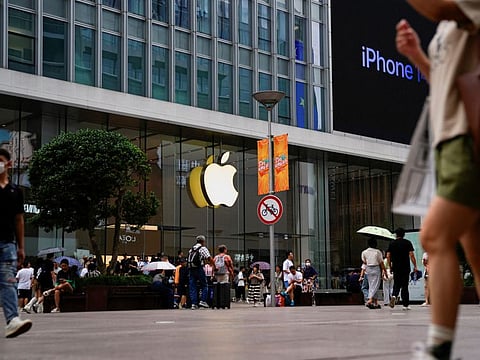China flags ‘security incidents’ with iPhones as bans expand
China plans to expand a ban on the use of iPhones to a plethora of state-backed companies

Beijing: China flagged security problems with iPhones, marking the government’s first comments on reports that authorities are moving to restrict officials’ use of Apple products.
“We noticed that there have been many media reports about security incidents concerning Apple phones,” Chinese Foreign Ministry spokeswoman Mao Ning told a regular press briefing in Beijing on Wednesday.
China plans to expand a ban on the use of iPhones to a plethora of state-backed companies and agencies, a sign of growing challenges for Apple in its biggest foreign market and global production base. Several agencies have begun instructing staff not to bring their iPhones to work.
“China has not issued laws and regulations to ban the purchase of Apple or foreign brands’ phones,” Mao said, adding that the government attaches “great importance” to security and that all companies operating in China need to abide by its laws and regulations.
The press conference came just hours after Apple unveiled its latest model of the marquee device, the iPhone 15. The company unveiled four new models, keeping pace with the past few generations: the iPhone 15, 15 Plus, 15 Pro and 15 Pro Max. Apple’s shares were little changed in premarket trading.
If Beijing goes ahead with an iPhone ban, the unprecedented blockade will be the culmination of a yearslong effort to root out foreign technology use in sensitive environments.
For now, it’s unclear how many companies or agencies could eventually adopt restrictions on personal devices, and there’s been no formal or written injunction as yet, Bloomberg News reported. State firms or organizations will likely vary in how strictly they enforce such bans, with some forbidding Apple devices from the workplace while others could bar employees from using them entirely.







